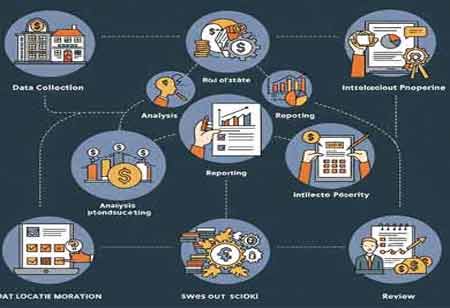CLOSE
Specials
- RegTech Europe
- Financial Risk Management APAC
- Investment Banking APAC
- Corporate Advisory APAC
- Regtech APAC
- Escrow Services
- Digital Banking Latam
- Trading Solutions APAC
- Treasury Management Europe
- CPA Firms Canada
- Financial Risk Management Europe
- Mortgage Broker
- Financial Licensing Europe
- RIA Advisory Europe
- FinTech Canada
- Financial Asset Management APAC
- Investment Banking Canada
- Payment Solution
- Lending Mangment Latam
- Payment Solution Europe
- Broker Dealer Firms Canada
- Alternative Investments Canada
- Financial Fraud
- Investment Management Latam
- Financial Health Europe
- Lending mangment
- Financial Marketing
- Proprietary Trading Europe
- Wealth Management
- FinTech
- Financial Brokerage Firm APAC
- Investment Advisory Europe
- Investment Advisory APAC
- Wealth Management MENA
- Claim Adjusting
- Claim Adjusting APAC
- Mergers and Acquisitions Consulting APAC
- Equipment Financing
- CPA Firms
- Mergers and Acquisitions Consulting Canada
- Investment Services
- Valuation Services Canada
- Wealth Management APAC
- Broker Dealer Firms
- Debt Collection Agencies
- Mergers and Acquisitions Consulting
- FinTech Europe
- Fintech Latam
- Financial Planning / Retirement
- Investment Management
- Financial Compliance
- Digital Banking Europe
- CFO Services
- Debt Collection Agencies Europe
- Wealth Management Europe
- Mergers and Acquisitions Consulting Europe
- Financial Restructuring Europe
- Financial Portfolio Management Canada
- Business Loan
- Payment and Card Latam
- Wealth Management Latam
- Mergers and Acquisitions Consulting Latam
- Tax Advisory Canada
- Trading Solutions Europe
- Alternative Investments
- Digital Insurance Europe
- Investment Services Latam
Weekly Brief
×Be first to read the latest tech news, Industry Leader's Insights, and CIO interviews of medium and large enterprises exclusively from Financial Services Review
Thank you for Subscribing to Financial Services Review Weekly Brief
Private Asset Management in the Middle East
In an international context of economic volatility, the Middle East has become a strong hub for wealth accumulation.

By
Financial Services Review | Wednesday, November 29, 2023
Stay ahead of the industry with exclusive feature stories on the top companies, expert insights and the latest news delivered straight to your inbox. Subscribe today.
In the dynamic landscape of private asset management in the Middle East, family offices play a pivotal role in overseeing the wealth of the region's most affluent families.
FREMONT, CA: The private asset management industry in the Middle East is at a turning point, propelled by a combination of increasing wealth, digital disruption, and changing regulatory environments. In an international context of economic volatility, the Middle East has become a strong hub for wealth accumulation.
Technology, especially big data and artificial intelligence (AI), is changing the asset management field. Financial institutions, for example, are using generative AI to provide advanced digital platforms that improve customer experiences and services.
A majority of asset managers believe that knowing environmental, social, and governance (ESG) is crucial, indicating a rising trend towards more ethical investing methods. In order to fulfill the changing expectations of investors, asset managers should improve their ESG competencies.
Family Office Asset Management
The Middle East's family office asset management industry has grown significantly, indicative of the region's overall economic development and quick wealth accumulation. Key aspects of this advancement are as follows:
Wealth Accumulation: There has been a notable accumulation of wealth in the Middle East; over 6,000 Ultra High Net Worth (UHNW) individuals have a total net worth of $995 billion. The number of family offices in the area has increased in tandem with this spike in wealth.
Professional Management Structures: Accounting for 60 per cent of the GDP in the Middle East, family companies play a crucial role in the region's social and economic scene. The expansion of these companies and the ensuing liquidity events, such as initial public offerings (IPOs), have made the need for more structured wealth management arrangements, such as family offices, necessary. These organizations support families in professionalizing and institutionalizing their capital, bridging the gap between wealth generated by businesses and individuals, and managing post-IPO wealth generation successfully.
Wealth Transition and Succession Planning: These issues have gained significant attention in the Middle East. Family offices are essential to coordinating this massive wealth transfer across family members since it is anticipated that the GCC alone will see the transfer of approximately $2 trillion from the present generation to the next over the course of the next ten years.
Investment Diversification: The family offices focus more on locating actual development prospects. Sustainable investing strategies and investments in the fintech and digital sectors are gaining popularity. Many regional investors now take ESG aspects into account when making investment decisions, according to a survey.
These advancements are fostering economic growth in the Middle East, where family offices oversee the assets of the region's most affluent families. This substantial influence is reshaping the asset management sector, capturing the attention of global investors and asset managers alike.

Copyright © 2025 Financial Services Review. All rights reserved





